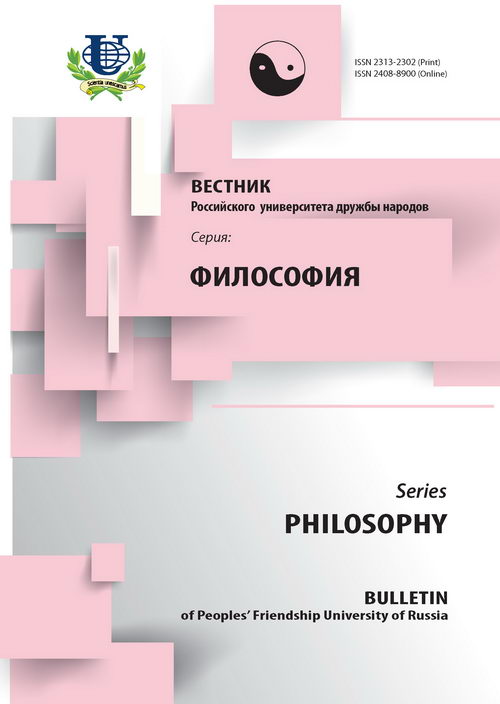Freedom and predication in the work of F.W.J. Schelling in 1800—1810 s
- Authors: Rezvykh PV1
-
Affiliations:
- National research university — Higher school of economics
- Issue: No 1 (2013)
- Pages: 6-18
- Section: Articles
- URL: https://journals.rudn.ru/philosophy/article/view/11537
- ID: 11537
Cite item
Full Text
Abstract
The article gives an analysis of the relation between freedom and rationality in the work of F.W.J. Schelling in the time between 1800 and 1810. The author argues that Schelling’s understanding of the concept of freedom in context of his identity philosophy is not so due to his reception of Platonism as to his reflection on various problems of the theory of transcendental ideal in Kant’s “Critic of pure reason”, at first on the problem of conditions for the possibility of the predicative form of propositions which Schelling interprets as a basic form of any rationality.
Keywords
About the authors
P V Rezvykh
National research university — Higher school of economics
Email: isavelieva@hse.ru
Poletayev Institute for Theoretical and Historical Studies in the Humanities (IGITI)
References
Supplementary files















